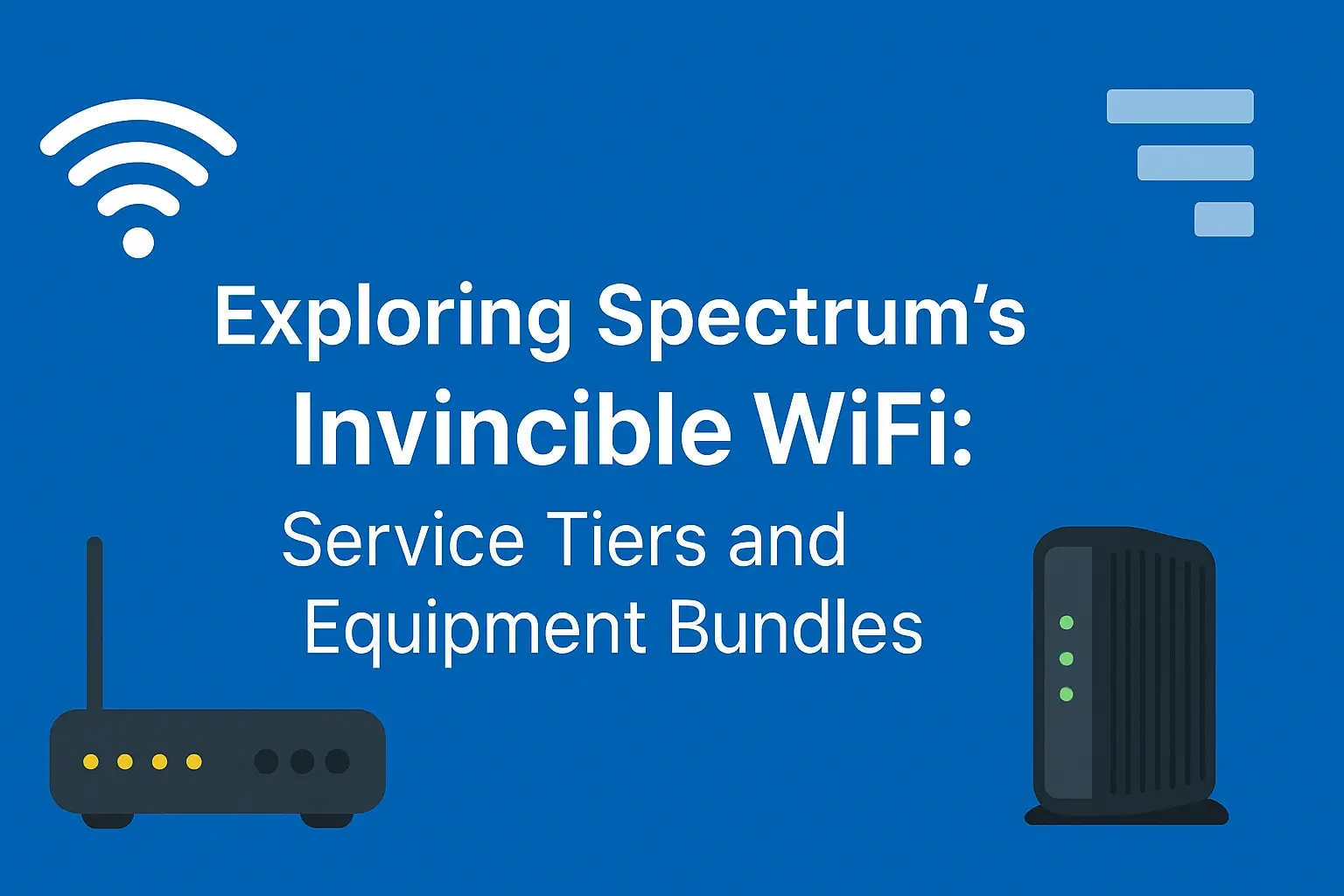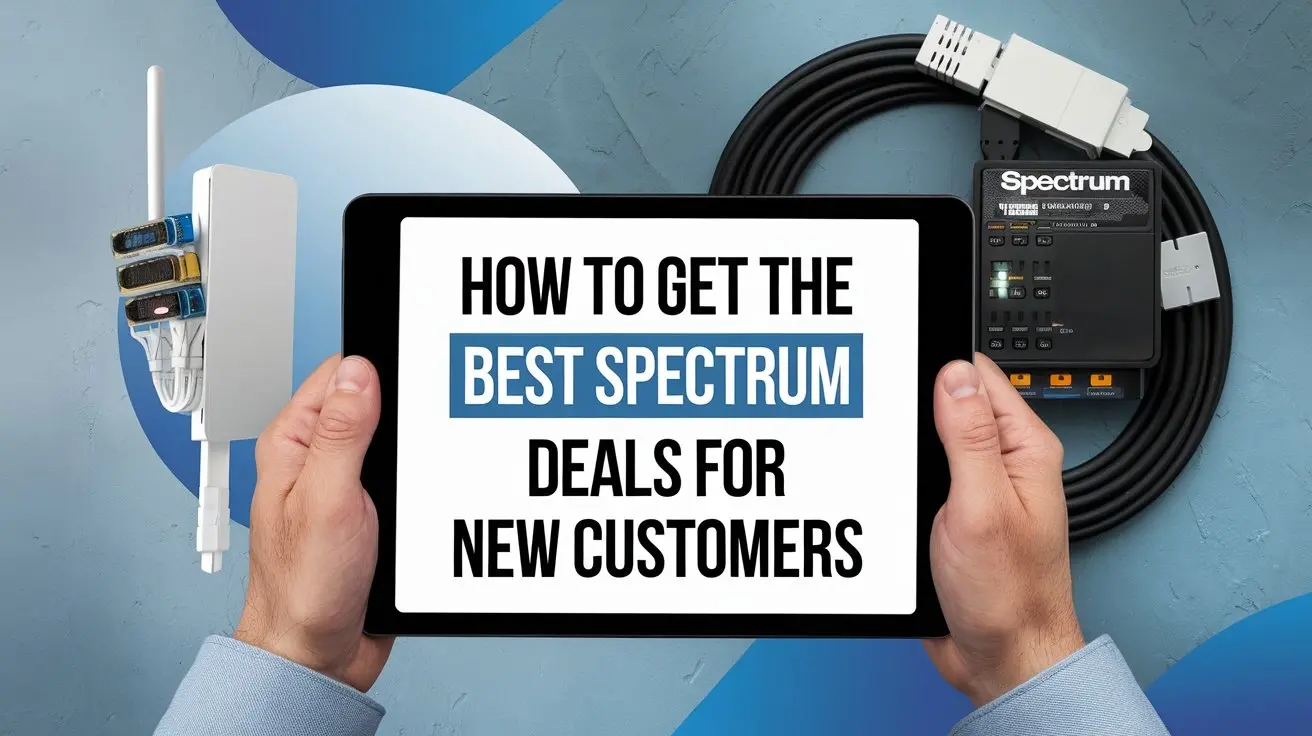Unlocking Spectrum Business Internet Pricing After 12 Months

Navigating Spectrum Business internet pricing after your initial 12-month promotional period can feel like a puzzle. This guide unlocks the strategies and insights you need to understand your post-contract costs and secure the best possible rates, ensuring your business operations remain uninterrupted and budget-friendly.
Unlocking Spectrum Business Internet Pricing After 12 Months
Spectrum Business, a prominent provider of internet, phone, and TV services for commercial clients, often attracts new customers with attractive introductory pricing. These initial offers, typically valid for the first 12 months, can significantly reduce monthly expenses. However, a common point of concern for business owners is what happens when these promotional periods conclude. Understanding the nuances of Spectrum Business internet pricing after 12 months is crucial for maintaining predictable operational costs and avoiding unexpected budget overruns. This comprehensive guide aims to demystify the process, equip you with knowledge, and empower you to make informed decisions to secure the best value for your business's connectivity needs.
The transition from a promotional rate to a standard rate can represent a substantial increase. Without proactive planning, businesses might find themselves paying significantly more for the same service, impacting their bottom line. This guide will delve into the typical price adjustments, the underlying factors that dictate these changes, and actionable strategies you can employ to mitigate these increases. We'll explore negotiation tactics, understand the value proposition of Spectrum's services, and even consider when it might be prudent to explore alternative providers. By the end of this article, you will have a clear roadmap for navigating Spectrum Business internet pricing after your initial contract term expires, ensuring your business remains connected and cost-effective.
The 12-Month Transition: What to Expect
The conclusion of a 12-month promotional period with Spectrum Business marks a significant shift in your billing. It's essential to understand that the price you were paying during the introductory phase is not the standard rate for the service. These promotional offers are designed to incentivize new customer acquisition and are inherently temporary. Upon reaching the 12-month mark, your monthly bill will typically revert to Spectrum's standard, non-promotional pricing for the specific internet plan you subscribed to.
Typical Price Increases: While the exact figures vary based on the plan, location, and any bundled services, expect a noticeable increase. For instance, a plan that was advertised at $79.99 per month for the first year could jump to $100, $120, or even more per month once the promotion ends. This increase isn't arbitrary; it reflects the standard market rate for the service's capabilities and the provider's operational costs. It's not uncommon for the standard rate to be 30-50% higher than the introductory price.
Contractual Obligations: It's vital to review your initial service agreement. Most Spectrum Business contracts have a term, often 12 or 24 months. While the promotional pricing is usually limited to the first 12 months, the contract itself might extend beyond this period. If your contract is for 24 months, you will continue to be bound by its terms until the full duration is met, even if the promotional discount has expired. Understanding your contract's end date is as important as understanding the pricing structure.
Automatic Renewal and Rate Changes: In many cases, after the promotional period, your service will automatically renew at the standard rate unless you take action. Spectrum, like many service providers, may also reserve the right to adjust standard rates periodically due to inflation, market conditions, or service upgrades. While less common for immediate post-promotional increases, it's a factor to be aware of for long-term service.
Bundling Effects: If your initial offer included bundled services like phone or TV, the pricing structure might be complex. The end of a promotion could affect the bundled discount, leading to a cumulative increase across all services. Understanding the individual pricing of each component within the bundle is crucial for assessing the true cost.
Communication from Spectrum: Spectrum Business typically sends out notifications regarding the end of promotional periods and the upcoming rate changes. However, these communications can sometimes be overlooked or buried in other correspondence. Proactively tracking your 12-month anniversary and anticipating these changes is the most effective approach.
Factors Influencing Your Post-Promotional Pricing
The price you ultimately pay for Spectrum Business internet after your initial promotional period isn't a one-size-fits-all figure. Several key factors contribute to the standard rate and influence your negotiation leverage. Understanding these elements will empower you to have more productive conversations with Spectrum representatives.
1. Internet Plan Tier and Speed
The most significant determinant of your monthly bill is the internet plan itself. Spectrum Business offers a range of plans with varying download and upload speeds. Higher speeds and more robust service tiers naturally come with higher standard pricing. For example, a business requiring gigabit speeds will have a significantly higher base rate than a business that only needs a few hundred Mbps for basic web browsing and email.
- Basic Plans: Suitable for small businesses with limited internet usage, typically offering speeds up to 300 Mbps.
- Standard Plans: For growing businesses needing more bandwidth, often in the 500 Mbps to 1 Gbps range.
- Premium Plans: Designed for high-demand operations, large enterprises, or businesses with extensive cloud usage, offering speeds of 1 Gbps and above.
The standard rate for these plans can vary widely. For instance, in 2025, a 300 Mbps plan might have a standard rate of $99.99-$129.99, while a 1 Gbps plan could range from $149.99-$249.99 or more, before any discounts or additional fees.
2. Service Location and Market Competition
Pricing can differ based on your geographic location. Areas with higher population density or more competitive broadband markets might see different pricing structures compared to more rural or less competitive regions. In areas where Spectrum faces strong competition from other cable providers or fiber optic companies, they may be more inclined to offer competitive standard rates or be more flexible during negotiations.
Example: A business in a major metropolitan area with multiple ISP options might find Spectrum's standard pricing more aggressive than a business in a less connected suburban area where Spectrum has a near-monopoly on high-speed internet.
3. Bundled Services
Many businesses opt for bundled packages that include internet, voice (phone), and sometimes TV services. While bundling often provides a discount compared to subscribing to each service individually, the end of a promotional bundle can lead to a more substantial price increase. It's crucial to understand the allocated cost of each service within the bundle. Sometimes, a promotional discount applies only to the internet portion, leaving other services at their standard rates, or vice versa.
2025 Bundling Insight: Providers are increasingly offering dynamic bundles. If you're only using the internet, consider if you can unbundle services to potentially lower costs, even if it means paying a slightly higher rate for internet alone.
4. Contract Length and Terms
While your initial 12-month promotion has ended, your underlying service agreement may have a longer term (e.g., 24 or 36 months). If you are still within a longer contract term, your options for changing plans or negotiating significantly might be limited until that contract expires. Conversely, if your initial agreement was month-to-month after the promotion, you have more flexibility.
Key Consideration: Always know your contract's expiration date. This is your most significant leverage point for renegotiation or switching providers.
5. Equipment Rental Fees
Spectrum Business may charge monthly fees for modem and router rentals. These fees, while seemingly small individually, add up over time. If you own your compatible equipment, you can avoid these recurring charges, thereby reducing your overall monthly bill. Check your contract to see if equipment rental is included and what the associated costs are.
6. Installation and Activation Fees
While typically incurred at the beginning of service, some contracts might have clauses for re-activation or service change fees. Understanding all potential one-time or recurring fees beyond the base internet service is vital for accurate budgeting.
7. Business Size and Usage Patterns
Larger businesses with higher bandwidth demands, multiple users, and critical uptime requirements will naturally be placed on higher-tier plans with higher base rates. Spectrum's pricing is often tiered to accommodate these varying needs. For instance, a small retail shop with a few employees will have different pricing needs than a software development firm with hundreds of employees relying on constant, high-speed connectivity.
8. Promotional Offers and Discounts
Even after the initial 12-month promotion, Spectrum may offer other, albeit less aggressive, discounts or promotions. These could be tied to specific times of the year, new service introductions, or loyalty programs. Staying informed about these potential offers is part of managing your post-promotional pricing.
Strategies for Cost Savings and Negotiation
The period immediately following your 12-month promotional offer is the prime time to engage with Spectrum Business to secure better pricing. Don't passively accept the standard rate increase. Proactive engagement and strategic negotiation can lead to significant savings. Here’s a breakdown of effective strategies:
1. Understand Your Current Plan and Usage
Before contacting Spectrum, thoroughly review your current internet plan. Know the exact speeds (download and upload), any data caps (though less common for business plans), and what services are bundled. Crucially, assess your actual internet usage. Are you consistently using the full bandwidth of your current plan, or are you paying for more speed than you need? Many businesses overestimate their requirements.
Actionable Step: Use network monitoring tools or consult your IT department to analyze your peak and average bandwidth usage over the past few months. This data is invaluable for negotiation.
2. Research Competitor Pricing
Knowledge is power. Before you call Spectrum, research what other internet service providers in your area are offering for comparable business plans. Gather details on their speeds, pricing, contract terms, and any introductory offers. This information will serve as your benchmark and leverage during discussions with Spectrum.
2025 Market Insight: The business internet landscape is evolving. Fiber optic providers are expanding, and 5G business internet solutions are becoming more viable. These alternatives can put pressure on cable providers like Spectrum to remain competitive.
3. Contact Spectrum Business Customer Retention/Sales
When your promotion is nearing its end, or shortly after it has expired, contact Spectrum Business. Don't speak to general customer service; aim for the retention department or the sales department that handles existing business clients. These teams are empowered to offer discounts and new promotions to keep your business.
Key Phrases to Use:
- "My 12-month promotional period is ending, and I'm concerned about the significant price increase."
- "I've been a loyal customer, and I'm looking for ways to keep my monthly costs stable."
- "I've been researching other providers, and [Competitor Name] is offering [specific plan and price]. Can Spectrum match or beat this?"
- "Are there any new promotions or loyalty discounts available for existing business customers?"
- "I'm considering downgrading my speed if I can't get a better rate on my current plan, as my usage doesn't seem to require this much bandwidth."
4. Negotiate for a New Promotion or Discount
Spectrum Business often has new promotional offers available for existing customers, even if they aren't advertised publicly. Be prepared to negotiate. Don't accept the first offer they give you. Ask for a renewed promotional rate, a loyalty discount, or a package that better suits your current needs and budget.
Negotiation Tactics:
- Be Firm but Polite: State your needs clearly and respectfully.
- Leverage Competition: Mention competitor offers without making empty threats.
- Ask for Specifics: If they offer a discount, ask how long it will last and what the price will be afterward.
- Bundle Re-evaluation: If you're bundled, ask if unbundling or reconfiguring the bundle could save money.
5. Consider Downgrading Your Plan
If your usage analysis reveals you're not utilizing the full speed of your current plan, consider downgrading to a lower-tier plan. This is often a straightforward way to reduce your monthly bill, especially if you can't secure a favorable rate on your existing plan. Ensure the lower speed still meets your essential business needs.
Example: If you have a 1 Gbps plan and only use around 300 Mbps, switching to a 500 Mbps plan could significantly reduce your standard rate while still providing ample bandwidth.
6. Explore Equipment Options
If you're renting a modem or router from Spectrum, inquire about the monthly rental fees. If these fees are substantial, consider purchasing your own compatible business-grade modem and router. This is a one-time upfront cost that can lead to recurring monthly savings. Ensure the equipment you purchase is on Spectrum's approved list to avoid compatibility issues.
7. Ask About Long-Term Contracts for Better Rates
While many businesses prefer month-to-month flexibility, signing a longer-term contract (e.g., 24 or 36 months) can sometimes secure a lower monthly rate. Spectrum Business may offer preferential pricing for customers willing to commit for an extended period. Be sure to understand all terms and conditions, including any early termination fees.
8. Document Everything
Keep meticulous records of all communications with Spectrum Business, including dates, names of representatives, and the details of any offers or agreements made. This documentation is crucial if any discrepancies arise later.
9. Be Prepared to Switch
The most powerful negotiation tool is the willingness to walk away. If Spectrum Business is unwilling to offer a reasonable rate that fits your budget, be prepared to switch to a competitor. This leverage should be used judiciously, but knowing you have viable alternatives gives you significant power.
When to Consider Alternatives: A Comparative Look
While Spectrum Business offers a compelling service, it's not always the best or most cost-effective solution for every business, especially after the initial promotional period. If negotiations with Spectrum fail to yield satisfactory pricing, or if your business needs have evolved, exploring alternative providers is a wise strategic move. This section provides a comparative look at potential alternatives and what to consider.
1. Fiber Optic Providers
Fiber optic internet is often considered the gold standard for speed, reliability, and symmetrical upload/download speeds. Providers like Verizon Fios Business, AT&T Fiber Business, or Google Fiber (where available) can offer significant advantages.
- Pros: Superior speeds (often symmetrical), lower latency, greater reliability, less susceptible to interference.
- Cons: Availability can be limited, especially outside major urban centers. Installation might be more complex.
- 2025 Pricing Note: Fiber providers are increasingly competitive, especially for businesses needing high bandwidth. Expect standard rates for gigabit fiber to be in a similar range to Spectrum's higher-tier plans, but with potentially better performance and fewer hidden fees.
2. Other Cable Providers
Depending on your location, other cable companies might offer business internet services. While they often use similar technology to Spectrum, their pricing structures, promotional offers, and customer service can differ.
- Pros: May offer competitive pricing or different bundle options.
- Cons: Technology is similar, so performance might not be drastically different. Availability is geographically dependent.
3. Fixed Wireless and 5G Business Internet
For businesses in areas where wired broadband is limited or expensive, fixed wireless and 5G business internet solutions are emerging as viable alternatives. Providers like T-Mobile for Business or Verizon Business offer these services.
- Pros: Can be deployed faster than wired solutions, potentially more cost-effective in certain scenarios, offers mobility benefits.
- Cons: Performance can be more variable depending on signal strength and network congestion. May have data caps or speed limitations compared to fiber or high-end cable.
- 2025 Trend: 5G business internet is rapidly maturing, offering higher speeds and lower latency than previous wireless technologies, making it a serious contender for many small to medium-sized businesses.
4. DSL Internet
Digital Subscriber Line (DSL) uses existing telephone lines to provide internet. It's generally slower and less reliable than cable or fiber but can be a fallback option in very rural areas where other services aren't available.
- Pros: Wide availability due to telephone infrastructure.
- Cons: Significantly slower speeds, especially upload speeds. Performance degrades with distance from the central office.
- 2025 Relevance: Increasingly phased out in favor of more advanced technologies, but still relevant for some niche locations.
5. Satellite Internet
Primarily for extremely remote locations where no other terrestrial options exist. Satellite internet is typically the most expensive and slowest option, with high latency and susceptibility to weather conditions.
- Pros: Available almost anywhere with a clear view of the sky.
- Cons: Very slow speeds, high latency, expensive, data caps are common, weather-dependent.
- 2025 Note: While advancements like Starlink are improving satellite internet, it remains a last resort for most businesses.
Comparative Table: Spectrum vs. Potential Alternatives (Illustrative 2025 Pricing)
| Provider Type | Typical Speeds (Download/Upload) | Estimated Standard Monthly Cost (1 Gbps Equivalent) | Key Considerations |
|---|---|---|---|
| Spectrum Business (Cable) | Up to 1 Gbps / 35-50 Mbps | $150 - $250+ | Wide availability, bundled services. Upload speeds are a limitation for some businesses. |
| Fiber Optic (e.g., AT&T, Verizon) | 1 Gbps / 1 Gbps (Symmetrical) | $130 - $220+ | Superior performance, reliability, and upload speeds. Availability is key. |
| 5G Business Internet (e.g., T-Mobile) | Variable (e.g., 100 Mbps - 1 Gbps potential) / Variable | $60 - $150+ | Fast deployment, potentially lower cost, but performance can vary. Good for less demanding needs or as a backup. |
Making the Switch: Key Steps
- Assess Your Needs: Clearly define your business's internet speed, reliability, and uptime requirements.
- Check Availability: Use online tools or contact providers directly to see what services are available at your business address.
- Compare Quotes: Obtain detailed quotes from at least 2-3 providers, including all fees and contract terms.
- Read the Fine Print: Pay close attention to contract lengths, early termination fees, data caps, and any promotional limitations.
- Schedule Installation: Coordinate the installation of the new service to minimize downtime. Ideally, schedule it to occur after your Spectrum contract ends or after you've negotiated the best possible rate with Spectrum.
- Notify Spectrum: Once your new service is active and confirmed, formally notify Spectrum Business to cancel your service, adhering to their cancellation policy.
Making the Informed Decision for Your Business
Deciding whether to stay with Spectrum Business at a new rate or switch to an alternative provider after your 12-month promotion requires careful consideration. The "best" choice is highly dependent on your business's specific circumstances, priorities, and budget. This section will guide you through the final decision-making process.
1. Recalculate Total Cost of Ownership
When comparing Spectrum's post-promotional pricing with competitor offers, ensure you're comparing apples to apples. Factor in:
- Base Internet Rate: The advertised monthly price.
- Equipment Rental Fees: If applicable.
- Installation/Activation Fees: One-time costs.
- Contract Length and Early Termination Fees (ETFs): Understand the commitment and potential penalties for breaking a contract.
- Bundled Service Costs: If you're considering keeping bundled services.
- Potential for Hidden Fees: Always ask about taxes, surcharges, and other miscellaneous fees.
Example Scenario: Spectrum offers a 1 Gbps plan at $180/month standard rate, plus $15/month for equipment rental. A fiber competitor offers 1 Gbps symmetrical for $150/month with no equipment rental fee, but requires a 24-month contract with a $300 ETF. For a 24-month period, Spectrum would cost ($180 + $15) * 24 = $4680. The fiber option would cost $150 * 24 = $3600. In this scenario, the fiber option is significantly cheaper over the contract term.
2. Evaluate Performance and Reliability Needs
Beyond price, consider what level of performance and reliability your business truly requires. For businesses that rely heavily on cloud-based applications, video conferencing, large file transfers, or host their own servers, symmetrical upload speeds and low latency offered by fiber are invaluable. If your business primarily uses the internet for email, basic web browsing, and point-of-sale transactions, Spectrum's standard cable speeds might still be sufficient, especially if you can negotiate a good rate.
2025 Uptime Statistics: Businesses can't afford downtime. While Spectrum offers good reliability, fiber optic connections are generally considered more robust and less prone to interference, leading to higher uptime percentages.
3. Assess Customer Service and Support
Customer service experiences can vary significantly between providers. While price and performance are critical, consider the ease of getting support when issues arise. Online reviews, recommendations from other local businesses, and your own past experiences with Spectrum's customer service can inform this decision.
Actionable Tip: If you've had consistently poor customer service experiences with Spectrum, it might be worth paying a slight premium for a provider known for better support.
4. Consider Future Business Growth
Think about your business's projected growth over the next 1-3 years. Will your internet needs increase? If you anticipate needing higher speeds or more bandwidth in the near future, choosing a provider that can easily scale with your business, or offers higher tiers at competitive prices, will save you the hassle of switching again soon.
5. The Power of Negotiation: Your Final Lever
Before making a final decision to switch, make one last attempt to negotiate with Spectrum Business. Clearly state that you have viable alternative offers and are prepared to move if they cannot meet your price point or service requirements. Representatives in retention departments are often authorized to offer significant discounts or new promotional packages to retain customers.
A Final Offer Example: "I have an offer from [Competitor] for 1 Gbps symmetrical fiber for $150/month on a 2-year contract. My current Spectrum plan is 1 Gbps with 50 Mbps upload, and after the promotion, it will be $180/month plus equipment fees. Can you offer me a new promotion on my current plan, or a similar speed plan, for $150 or less per month for the next 24 months?"
Conclusion: Securing Your Business's Connectivity Future
Unlocking Spectrum Business internet pricing after 12 months is an achievable goal with the right approach. By understanding the typical price increases, identifying the factors that influence your bill, and employing strategic negotiation tactics, you can significantly reduce your post-promotional costs. Researching competitors and being prepared to switch provides the leverage needed to secure favorable terms. Ultimately, the decision hinges on balancing cost, performance, and reliability to best serve your business's unique needs. Proactive engagement and informed decision-making are your keys to maintaining optimal connectivity without breaking the bank.





